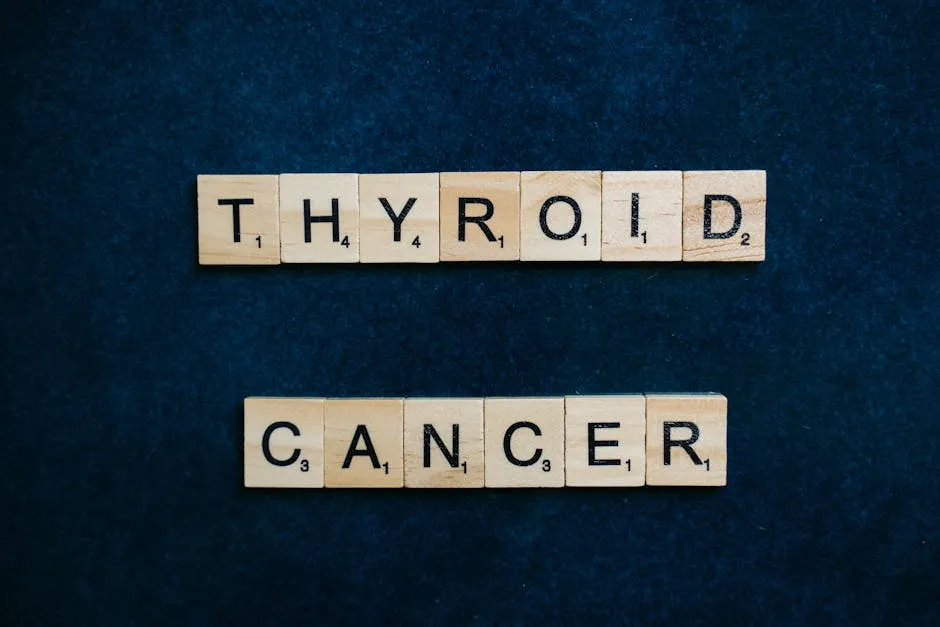
Why Am I Always Tired and Have No Energy? Understanding Fatigue in Women
Introduction
Feeling tired all the time? You’re not alone. Fatigue is a widespread issue for women. Identifying its root causes is vital for effective solutions. In this article, we’ll look into various factors that contribute to fatigue in women. Plus, we’ll share practical tips to help you regain your energy and zest for life.Speaking of regaining energy, have you ever tried a Herbal Tea Variety Pack? It’s like a soothing hug in a cup, perfect for winding down before bed. The right herbal tea can help you relax and prepare for a good night’s sleep, which is crucial for fighting fatigue!
Summary
Fatigue is more than just feeling sleepy; it can disrupt daily life and affect overall well-being. Various factors lead to persistent tiredness in women, including lifestyle choices, hormonal changes, medical conditions, and mental health issues. Insufficient sleep, poor nutrition, and stress can all play a role. Understanding these causes is essential for improvement. This guide will highlight the most common reasons women experience low energy levels and offer actionable advice for recovery. Remember, you don’t have to accept fatigue as your new normal. There is hope for a more energized life ahead!
Causes of Fatigue in Women
Lifestyle Factors
Inadequate Sleep
Sleep is like a magic potion for energy. Most adults need 7-9 hours of quality sleep each night. However, many women fall short of this essential requirement. Poor sleep quality can lead to sleep debt, leaving you feeling like a zombie. Disruptive factors include insomnia, sleep apnea, and even hormonal fluctuations during menstruation or menopause. To improve sleep hygiene, create a calming bedtime routine. Keep your bedroom dark, cool, and quiet, and avoid screens before bed. If you’re finding it tough to sleep, consider evaluating your habits. Are you drinking caffeine too late? Are stress levels high? Addressing these issues can pave the way for better rest. Remember, a well-rested woman is a powerful woman!
Enhance your sleep experience with a comfortable Sleep Mask. It blocks out light and helps you drift into dreamland faster, ensuring you wake up refreshed and ready to conquer the day!
Nutritional Deficiencies
Iron Deficiency Anemia
Feeling constantly tired? It could be iron deficiency anemia. This condition occurs when your body lacks enough iron to produce healthy red blood cells. Without these cells, your body struggles to transport oxygen, leading to fatigue. Studies show that women, especially those who menstruate or are pregnant, are at higher risk for iron deficiency. To combat this, consider incorporating iron-rich foods into your diet. Think leafy greens, beans, red meat, and fortified cereals. If food alone isn’t cutting it, a supplement might be necessary. Always check with a healthcare provider before starting any new regimen.
To support your iron levels, try adding an Iron Supplement to your daily routine. It’s a simple way to ensure you’re getting the nutrients your body needs to keep fatigue at bay!
Other Nutrient Deficiencies
Fatigue may also stem from a lack of essential vitamins and minerals. Vitamins B12 and D, along with magnesium, play critical roles in energy production. Vitamin B12 supports red blood cell formation and proper nerve function, while vitamin D boosts mood and immune health. Don’t forget about magnesium; it helps convert food into energy. To maintain energy levels, aim for a balanced diet filled with fruits, vegetables, whole grains, and lean proteins. If fatigue persists, consider consulting a healthcare provider for testing. After all, understanding your nutritional needs is key to feeling your best!
Consider supplementing with B12 Gummies. They’re delicious and provide a convenient way to boost your energy levels while satisfying your sweet tooth!
Mental Health Factors
Stress and Anxiety
Feeling constantly tired? It could be stress or anxiety! These mental health issues can sap your energy faster than a toddler on a sugar rush. Stress triggers your body’s fight-or-flight response, which can leave you feeling drained. Anxiety, on the other hand, is like that annoying background music you can’t turn off. It keeps your mind racing, preventing restful sleep. To combat this energy thief, try relaxation techniques! Meditation, yoga, or even a simple deep-breathing exercise can work wonders. Schedule “me time” to unwind, and consider talking to someone about your stress. Therapy can also be a fantastic way to find coping strategies. Remember, it’s okay to reach out for help!
If you’re looking for a way to enhance your relaxation routine, an Essential Oil Diffuser can be a game-changer. Fill your space with calming scents that create a tranquil atmosphere, perfect for unwinding after a long day!
Depression
Depression can feel like a heavy blanket, smothering your energy and zest for life. Symptoms like persistent sadness, loss of interest in activities, and fatigue can make even the simplest tasks feel monumental. In fact, over 90% of individuals with major depressive disorder report fatigue as a primary symptom. If you suspect you might be experiencing depression, don’t hesitate to seek professional help. Talking to a therapist can provide you with the support and tools needed to tackle this issue. You deserve to feel better!Chronic Conditions
Thyroid Disorders
Thyroid disorders, especially hypothyroidism and hyperthyroidism, can significantly affect energy levels. An underactive thyroid can slow your metabolism, making you feel sluggish. Conversely, an overactive thyroid can lead to fatigue as your body struggles to keep up with increased demands. It’s crucial to monitor your thyroid function through regular testing. If you have symptoms like weight changes or mood fluctuations, make sure to discuss thyroid health with your doctor. A simple blood test can help you get back on track!
Other Medical Conditions
Chronic conditions like PCOS, diabetes, and chronic fatigue syndrome can also contribute to persistent fatigue. PCOS can lead to hormonal imbalances, causing fatigue and mood swings. Diabetes can cause energy dips due to fluctuating blood sugar levels. Chronic fatigue syndrome is characterized by overwhelming exhaustion that doesn’t improve with rest. If you’re experiencing unexplained fatigue, it’s time for a full medical evaluation. Identifying underlying issues is the first step towards regaining your energy and vitality. Don’t wait—your health matters!
Healthy Lifestyle Changes
Improving Sleep Quality
To transform your sleep into a rejuvenating experience, focus on good sleep hygiene. Establish a calming bedtime routine, such as reading a book or sipping herbal tea. Keep your bedroom dark, cool, and free from distractions like electronics. It’s also crucial to stick to a consistent sleep schedule—even on weekends! Aim to hit the sack and rise at the same time daily. This helps regulate your body’s internal clock, paving the way for better rest and more energy during the day.
For those looking to enhance their sleep experience, consider a Weighted Blanket. These cozy companions provide gentle pressure that can help you feel more secure and relaxed as you drift off to sleep!
Nutrition and Hydration
Meal planning can be a game changer for energy levels. Create a balanced diet with plenty of fruits, vegetables, lean proteins, and whole grains. Snacking every three to four hours can keep your energy steady. Don’t forget hydration! Drinking enough water throughout the day is essential. Even mild dehydration can lead to fatigue. So, keep that water bottle handy and sip away!
Stay hydrated with a Water Bottle with Time Markers. It’s a fun way to keep track of your hydration goals throughout the day!
Regular Exercise
Regular physical activity can be your best friend against fatigue. Exercise boosts energy by improving circulation and releasing endorphins. Aim for at least 150 minutes of moderate aerobic exercise weekly—think brisk walking, cycling, or dancing! Even a quick 15-minute walk can elevate your mood and energy levels. Remember, every little bit counts, so find activities you enjoy and incorporate them into your routine.
For a fun way to get moving, try incorporating Resistance Bands into your workouts. They’re versatile, easy to use, and can help you build strength without needing a gym membership!
FAQs
What are common causes of fatigue in women?
Fatigue in women can stem from various sources. Lifestyle factors, such as inadequate sleep and poor nutrition, play a significant role. Hormonal changes during menstruation, pregnancy, or menopause can also disrupt energy levels. Additionally, medical conditions like anemia, thyroid disorders, and chronic fatigue syndrome are common culprits. Mental health issues, including stress, anxiety, and depression, further contribute to feelings of exhaustion. Understanding these causes can help women address fatigue more effectively.
How much sleep do women need?
Most adults require 7 to 9 hours of quality sleep per night. Sleep is vital for physical health, emotional well-being, and overall energy levels. Quality matters just as much as quantity. A consistent sleep schedule, a calming bedtime routine, and a comfortable sleeping environment can significantly improve sleep quality. Prioritizing sleep is essential for maintaining energy levels throughout the day.
Should I see a doctor for fatigue?
If fatigue persists for several weeks without a clear reason or if it interferes with daily activities, it’s time to consult a healthcare provider. Symptoms like significant weight changes, mood swings, or sleep disturbances warrant professional evaluation. A doctor can help identify underlying conditions, recommend appropriate tests, and suggest treatment options tailored to your needs.
Can diet affect my energy levels?
Absolutely! Nutrition plays a crucial role in determining energy levels. A balanced diet rich in fruits, vegetables, whole grains, and lean proteins can support sustained energy. Nutritional deficiencies, particularly in iron, vitamin D, and B12, can lead to fatigue. Staying hydrated is equally important; even mild dehydration can sap your energy. Regular, nutritious meals every few hours can help maintain steady energy levels.
What lifestyle changes can help reduce fatigue?
Making simple lifestyle adjustments can significantly reduce fatigue. Start by establishing a consistent sleep routine. Aim for regular exercise, as physical activity boosts energy levels and improves sleep quality. Manage stress through techniques like meditation, yoga, or engaging in hobbies. Maintain a balanced diet and stay hydrated. Finally, limit caffeine and alcohol intake, especially before bedtime, to enhance sleep quality and overall well-being.
All images from Pexels




